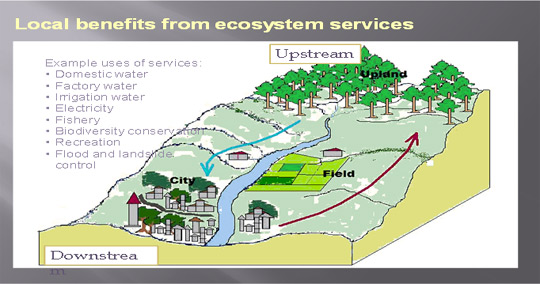|
NETIF PROJECTS
Payment for
Environmental Services (PES)
Payment
for Environmental Services (PES) is one of the projects being
conducted by NETIF along with ICIMOD, Forest Action and Sundarijal
Environment and Tourism Development Society (SETDS).Payment for
Environmental Services (PES) is a mechanism that has been tried and
tested in many countries around the world, but for Nepal it is a
totally new concept. As a general definition it is a form of
sustainable financing for conservation, or in other words, a
voluntary or mandatory-by-law practice for farmers or landowners to
be paid or offered incentives to help protect the natural resources
of their land or other ecological services. The PES scheme basically
involves charging the beneficiary groups ‘downstream’ for the
services received, and paying to the community groups ‘upstream’ to
finance the conservation management of the area.

PES
mechanisms can be effective in protected area management, only when
they also contribute to the livelihoods and wellbeing of the local
communities. The initial feasibility study in the the Sundarijal
catchment area of Shivapuri Nagarjun National Park indicated that
the people living in the villages inside the protected area are
suffering economically, with little trust and intense conflict with
the park authorities. With few livelihood options local people have
resorted to making alcohol, using fuel wood collected from the
protective area.
NETIF along with Forest Action Nepal are collaborating with ICIMOD
to carry out action research, awareness campaigns, and environmental
conservation training initiatives within the watershed catchment
area of Shivapuri Nagarjun National Park, which supplies 66% of the
drinking water to the inhabitants of Kathmandu. The project includes
coordinating, supporting, and empowering the local stakeholders such
as the local government committees, schools, clubs, and institutions
on the importance of implementing such a scheme and the level of
benefit they could potentially receive. NETIF is working on this
pilot scheme in conjunction with their own action research programs
such as the organic farming training, waste management, and
sanitation as prime examples of environmental conservation
techniques.
|